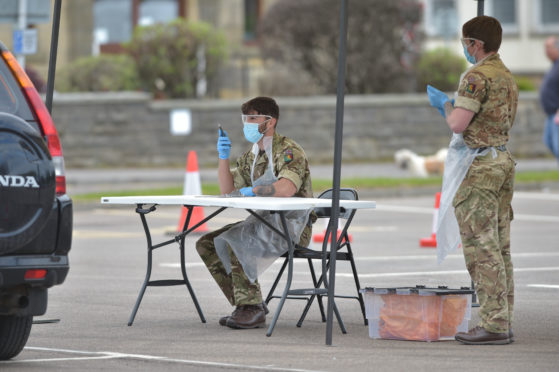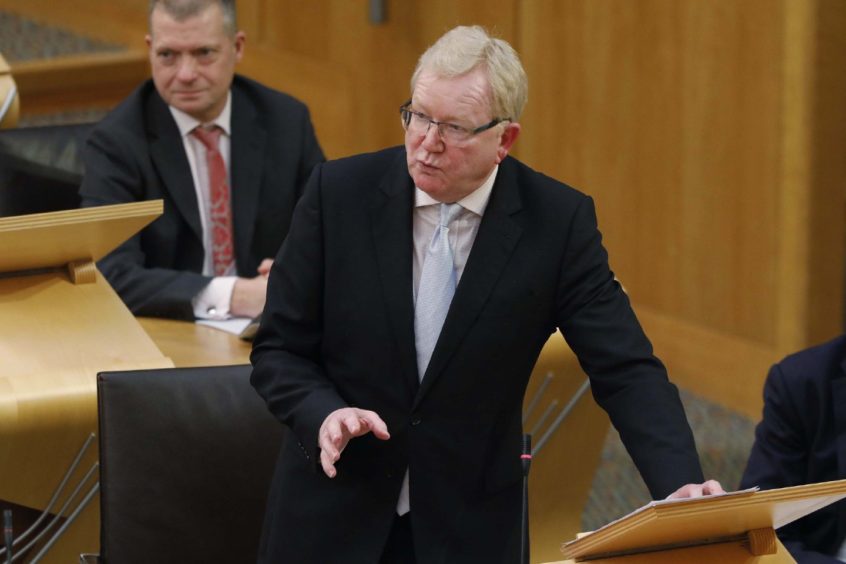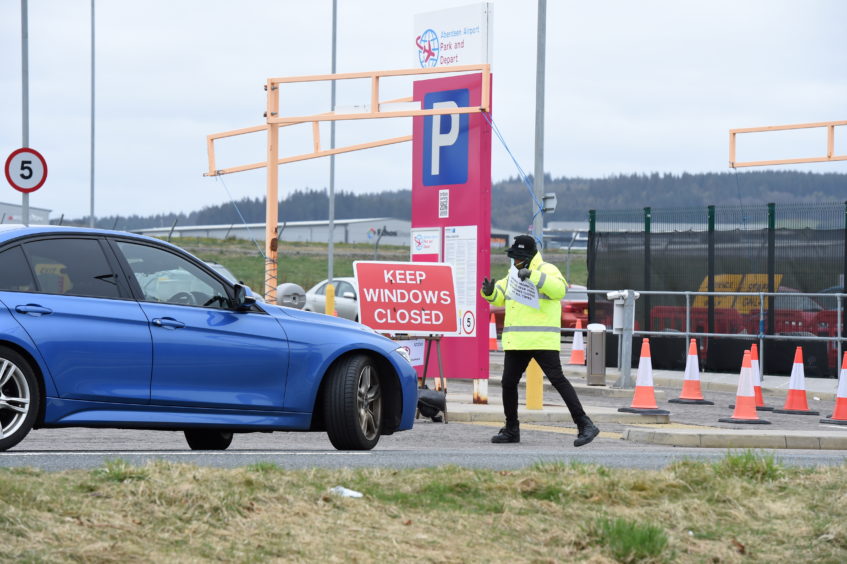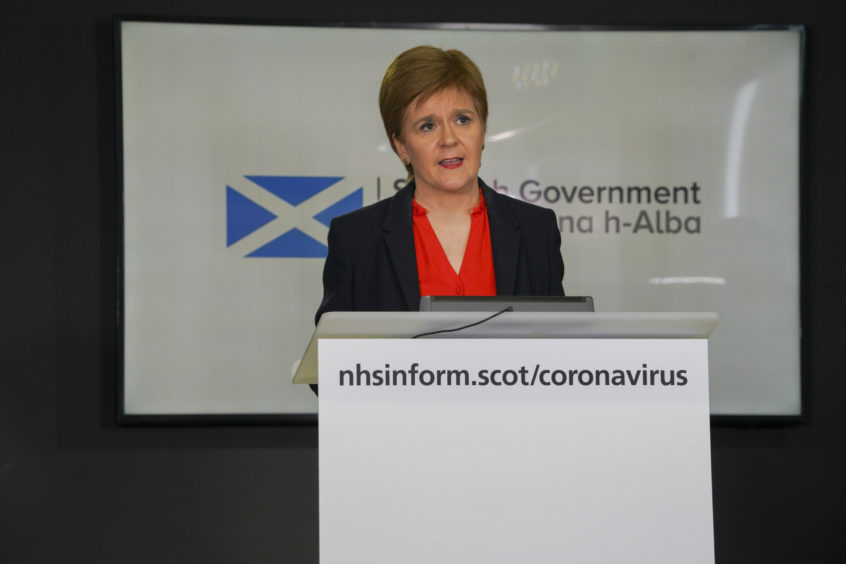Remote and rural residents will be among the first in line for an expanded system of home-testing for coronavirus in Scotland.
First Minister Nicola Sturgeon confirmed the plan as she outlined the government’s intention to implement its “test and protect” strategy from Thursday.
It is being put in place ahead of an anticipated initial relaxation of lockdown rules from Friday.
I think you can take it as read that remote and rural areas are very much in our minds.”
Nicola Sturgeon
Speaking at the daily Covid-19 briefing, Ms Sturgeon said that Scotland now had a testing capacity of more than 15,000 and would have 2,000 contact tracers by the end of the month, although she expected only about 700 would be needed.
The first minister said: “This is a system that will operate at a scale not seen before in Scotland.
“We have, of course, had testing and contact tracing before, but we are substantially increasing the scale.
“Over the first couple of weeks it will need to bed down but introducing it at the same time as we take the first, very cautious steps out of lockdown gives us the opportunity to address any operational issues ahead of a potentially more substantial easing of restrictions at the next review date in three weeks.”
However, Scottish Conservative leader Jackson Carlaw questioned the SNP government’s record on testing, saying the scale of capacity did not matter “if people aren’t actually being tested”.
“Every day the SNP government falls well short of the target to test 10,000 a day, and more often than not misses that target by half,” he said.
“That leaves thousands of care home residents, workers and their families untested, and that’s why we’re seeing such a crisis in these facilities.”
Ms Sturgeon insisted that the government was working to make testing more locally accessible, including home-testing.
Currently there are 13 mobile testing units which regularly move around.
Increased provision could include advising people whether they are able to get a home-testing kit or, in the future, arranging a home visit by a health professional.
Asked if rural areas would be first in line to benefit, the first minister said: “I think you can take it as read that remote and rural areas are very much in our minds, because the distances involved are often more prohibitive to people transporting themselves to testing.”
Professor Fiona McQueen, chief nursing officer, said that “clearly, yes” there would be a prioritisation of remote and rural areas.
She added: “What we will do is that we would want and encourage people to go to testing centres, but where that is not possible, we would certainly be looking to make sure that everyone has access to a test, and that may be home-testing.
“Yes, remote and rural areas, but we’ll also have other people who live in more urban areas, where they have other responsibilities and it may be two or three buses.
“We need to be very, very careful that we don’t discriminate against people without cars and without transport, but we will absolutely be making sure that everyone has access to a test who needs one.”
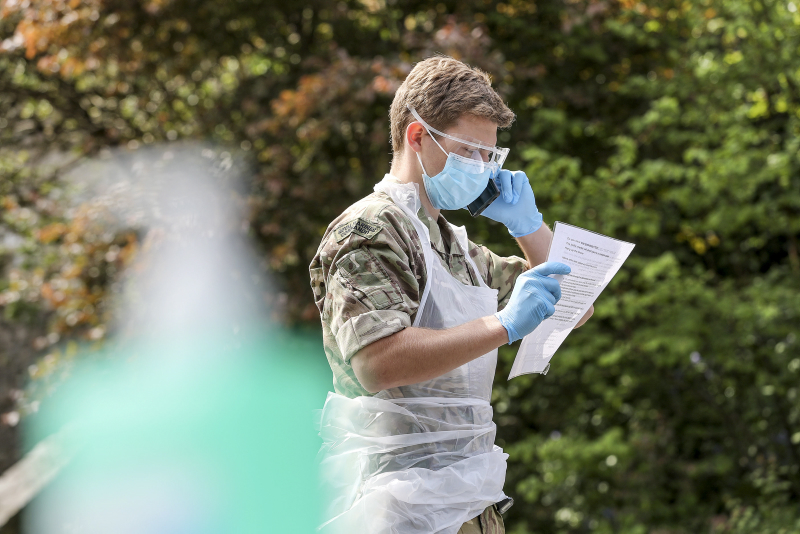
At the briefing, the first minister confirmed that a total of 2,291 patients in Scotland had now died after testing positive for coronavirus, up by 18 from 2,273 on Monday.
She said 15,185 people had tested positive for the virus, up by 29 from the day before, and that 1,200 people were in hospital with confirmed or suspected Covid-19, a decrease of 69.
A total of 36 people were in intensive care, a fall of four.
As part of the new testing and tracing initiative, Ms Sturgeon said public health software that had already been used to trace the contacts of those with other infectious diseases had now been scaled up.
Ms Sturgeon urged those with symptoms of coronavirus not to delay seeking a test.
Under the plan, if a person tests positive, they will be asked to provide names of people they have been in contact with face-to-face, in their household, or less than two metres for 15 minutes or more.
Those contacted will not be told the name of the person who tested positive, in order to protect their privacy.
They will be asked to self-isolate and to immediately head home if they are at work.
Employers should not ask them to go into work but may ask them to work from home.
The Scottish Government will publish guidance for employers “making clear they should support any member of staff who is asked to self-isolate through Test and Protect”.
Ms Sturgeon said the Scottish Government had been in touch with the UK Government to “ensure that employment rights and entitlement to benefits, including statutory sick pay, take account of the fact that people might be off work or unable to attend appointments through no fault of their own”.
Being asked to isolate in this way is “something that over the months ahead could happen to any of us on more than one occasion”, Ms Sturgeon said.
She added that the information of tested persons would not be accessible by the Scottish Government and would be handled within the NHS.
“Your privacy will be respected at all times during this process,” the first minister said.
